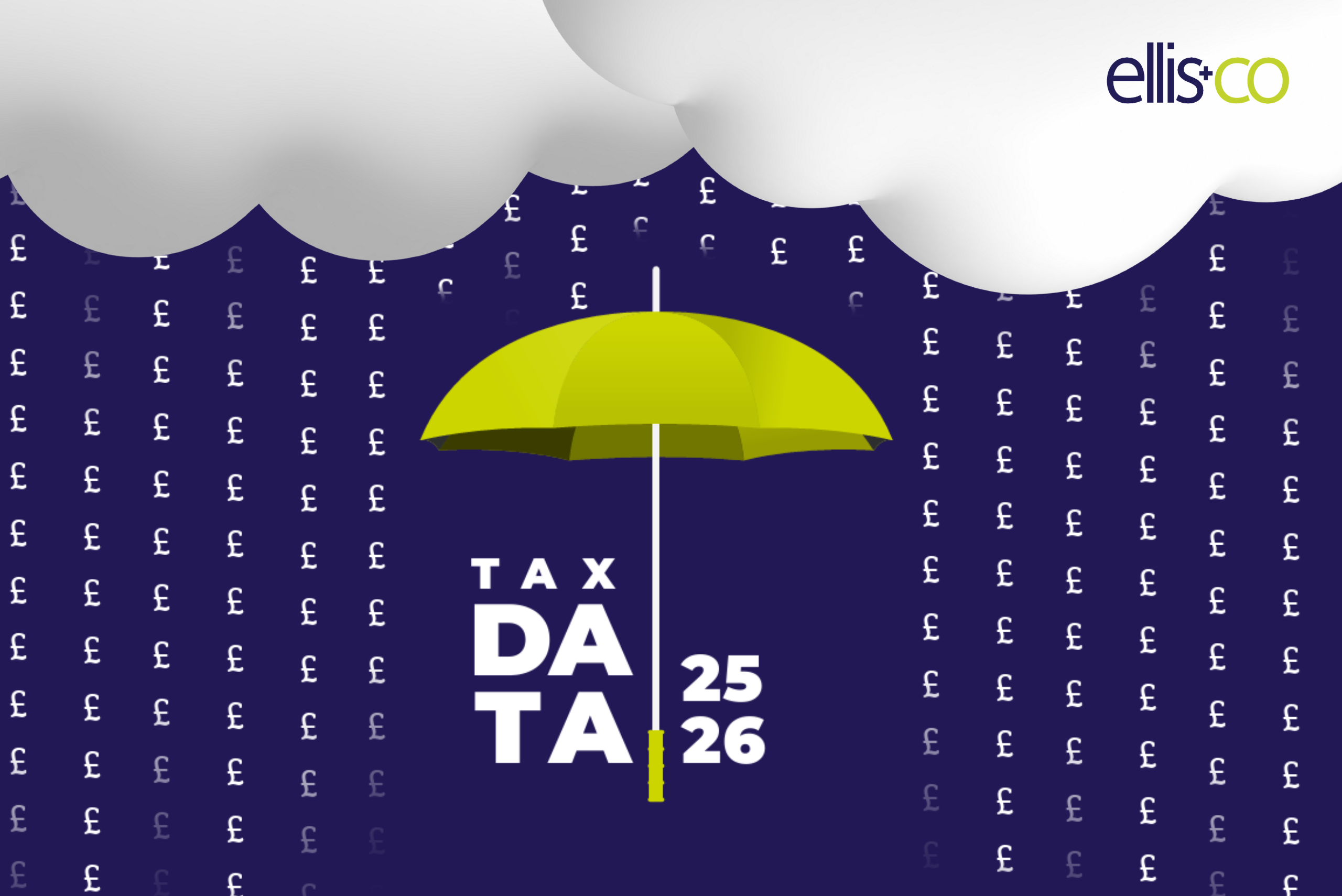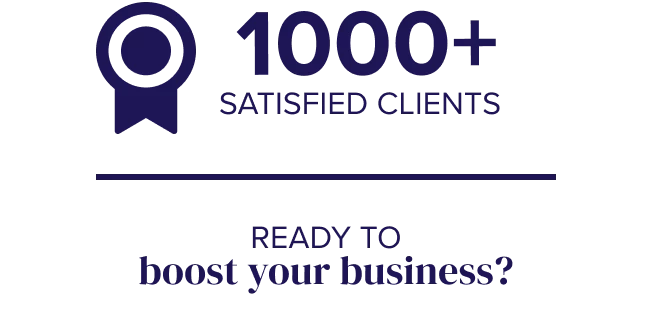Preparing for the 2025/26 Tax Year: What You Need to Know
The start of the 2025/26 tax year is here, and it’s vital to stay ahead of any changes that could impact your financial planning!
At Ellis & Co, proactive preparation is key to making the most of the new tax year and that you’re on track to meet your financial goals. In this blog, let’s break down what you need to know about this tax year and how you can prepare effectively:
1. Understand the Key Tax Changes for 2025/26
First off, you’ll need to know the important changes that the 2025/26 tax year may bring and understand how these may impact you and your business. Some of the key areas to watch out for include:
- Income Tax Rates and Thresholds:
Any updates to income tax bands could impact how much you pay based on your earnings. We recommend keeping an eye on any changes to personal allowances that may affect your overall tax liability. - National Insurance Contributions (NICs):
Changes to National Insurance thresholds or rates could have an effect on your monthly contributions and ultimately your take-home pay. As of this year, and as per the 2024 Autumn Budget, the rate has increased from 13.8% to 15% for employers. - Capital Gains Tax (CGT):
If you’re considering selling assets, such as property or investments, be mindful of potential adjustments to CGT rates or annual exemption limits. Since the 6th of April, CGT rates are to remain at 18% for basic tax payers and 24% for those paying higher when it comes to residential property. Albeit this rate has increased for assets such as shares.
For Business Asset Disposal Relief (BADR) and Investors’ Relief, it should be noted that it has increased to 14% and would rise again to match the lower main rate of CGT at 18%.
- Pensions and Tax Relief:
This year would be a great opportunity to reduce your taxable income while securing your retirement future, especially if you have private pension contributions. With this in mind, consider contributing more to your pension pots, particularly if there are changes to annual allowance limits or tax relief eligibility.
2. Review Your Finances Early
After knowing these changes, now is the time to get your finances in order!
The earlier you start reviewing them, the more time you’ll have to make strategic decisions that can save you money or reduce your tax burden. Hence, here are a few points for your checklist:
- Maximise Tax-Efficient Savings:
Firstly, is your ISA allowance fully utilised? The new tax year is a great opportunity to ensure you’ve used your annual allowance for tax-efficient savings, like ISAs, before the deadline passes. So if you’ve not started utilising them fully, now it’s a great time to start! - Check Your Tax Code:
Secondly, check your tax codes! Errors in your tax code can result in you overpaying or underpaying tax. By making sure your tax code is accurate, especially if you’ve had any changes in your circumstances (like getting a new job or additional income streams), you’ll be able to ensure you’re keeping compliant and potentially saving some money. - Consider Capital Gains Planning:
Lastly, if you’ve made or plan to make any capital gains, make sure you’re up to date with CGT rules and review your portfolio! By planning in advance, this will help you mitigate tax liability by using annual exemptions or offsetting losses.
3. Review Your Business Finances
If you’re a business owner, there are additional considerations for preparing for the new tax year. The key things to focus on include:
- Corporation Tax Rates and Reliefs:
Though you only pay Corporation Tax at the rates that apply to your company’s accounting period for it, make sure you’re familiar with the latest changes to corporation tax rates, particularly if you’re running a small or medium-sized business (SME). There may also be changes to tax reliefs, like Research & Development (R&D) tax credits, that could benefit your business. - VAT and VAT Registration:
If your business’s turnover is close to the VAT registration threshold, this might be the year to assess whether you need to register for VAT or review your current VAT arrangements. - Planning for Employment Costs:
Employers should consider the new National Insurance thresholds and employee pension contributions to ensure their payroll systems are prepared for any changes.
4. Review Your Pension and Investments Strategy
The new tax year is an excellent time to review your long-term savings strategy, particularly for pensions and investments, as you may consider the following:
- Maximise Pension Contributions:
By taking full advantage of any opportunities to contribute to your pension before the tax year ends, doing so will help reduce your taxable income which you can benefit from employer contributions and tax relief. - Consider Diversifying Your Investments:
The new tax year provides a fresh slate to assess whether your current investment portfolio is aligned with your risk profile and financial goals.
5. Consider Working with an Expert Accountant
Tax rules and regulations can be a complex field to work around, so by working with an experienced accountant, you can be certain that you’ll gain valuable help when navigating the tax landscape to identify areas where you could save money.
At Ellis & Co, we’re more than just accountants. Determined to help you grow and thrive, we offer personalised tax advice and accounting services to both individuals and businesses. From payroll and tax planning to bookkeeping and business development, our experts are here to help you plan for the new tax year effectively.
—
Overall, preparing for the 2025/26 tax year is an essential step in making the most of your financial situation. With some foresight and planning, you can optimise your tax position, save money and ensure you’re on track to meet your goals. Here at Ellis & Co, we’ve also prepared a valuable resource – the Ellis & Co Tax Card – to help businesses and individuals navigate the upcoming changes. This card is a complete guide that highlights key tax dates, tax reliefs, allowances and essential information to ensure everyone is prepared and on track for a smooth year ahead.
Download our Tax Card now, and if you’d like assistance with preparing for the upcoming tax year or if you have any questions, don’t hesitate to get in touch with us today.
Ellis & Co Director, John Farrell, mentioned:
“The start of a new tax year presents both challenges and opportunities. By planning ahead and staying informed about potential changes, our clients can position themselves for financial success. At Ellis & Co, we’re committed to providing tailored advice to help our clients navigate the complexities of tax planning, ensuring they make the most of every opportunity available to them.”
About Ellis & Co
Ellis & Co is a leading accountancy firm specialising in bookkeeping, payroll, tax planning and business advisory services. We work with a diverse range of businesses, from start-ups to established companies, ensuring they have the financial clarity and support they need to succeed. With our team of experienced accountants based in Chester and Wrexham, we are proud to offer personalised solutions that help businesses succeed.
If you’re ready to take the next step in your business journey, get in touch with us today. Call us at 01244 343 504 or look through our website to learn more about how we can help you with all your accounting needs.





